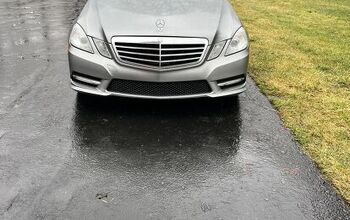UAW Sets Up Organizing Committee At Tesla Motors' Fremont Assembly Plant
Workers at Tesla’s Fremont plant celebrate the 1,000th Model S body built, 2012.
United Auto Workers president Bob King has said that the labor union is interested in organizing Tesla’s assembly plant in Fremont, California and that a group of workers at the site have set up an organizing committee for the UAW. That factory is where Tesla assembles the battery powered Model S. Tesla has prided itself in being different from Detroit and its headquarters’ location, the Silicon Valley, is not exactly a labor hotbed.
While under King the autoworkers’ union has been more collaborative than confrontational with automakers, should the UAW organize Tesla that would undoubtedly affect the corporate culture at the EV startup. “Elon [Musk]’s attitude was always, ‘We’re going to Silicon Valley-ize the car business,’ ” Karl Brauer, with Kelley Blue Book told the SFGate.com. “If he goes union, he’s going to take a huge step toward falling in line with the industry that he used to make fun of.”
It’s a testy subject. Despite King’s comments, when contacted by the San Francisco Chronicle, the UAW’s public relations director would not comment. Neither would Tesla, nor many of their employees. For Musk’s part he seems ambivalent. When Tesla purchased the Fremont facility from Toyota (which had formerly operated it with General Motors as the New United Motor Manufacturing Inc. (Nummi) plant) Musk said, “on the question of the union, we’re neutral.” However, Tesla Motors’ last annual financial report listed possible union activity under business “risks”: “The mere fact that our labor force could be unionized may harm our reputation in the eyes of some investors and thereby negatively affect our stock price. Additionally, the unionization of our labor force could increase our employee costs and decrease our profitability, both of which could adversely affect our business, prospects, financial condition and results of operations.”
In August, King told WardsAuto that Musk had repeated his neutral position at a meeting with union representatives, but that other Tesla executives were less open to the idea of an organized labor force. Musk, King said, was “very open and said he would respect what the workers wanted. But his operating management has done the opposite.”
Tesla’s Fremont plant is the only remaining car assembly plant on the West Coast. When it was called NUMMI, it employed 4,700 workers, most recently building Tacoma pickups and Corolla sedans. Current employment is estimated to be about 2,000, many of who are experienced autoworkers, having worked at the facility under prior management.
Employee reviews of Tesla posted online mention a fast pace and long hours. That’s typical of many Silicon Valley startups, which typically focus more on engineering than manufacturing. While work hours are a traditional wedge issue that labor unions use to rally workers onto their side, the frenetic pace in Silicon Valley is part of the culture there. “Engineering lends itself to a different style of self-starters, independent-minded people, survival of the fittest,” said Art Pulaski, head of the California Labor Federation labor union. “Manufacturing is different.”
More by TTAC Staff
Latest Car Reviews
Read moreLatest Product Reviews
Read moreRecent Comments
- Ger65691276 I would never buy an electric car never in my lifetime I will gas is my way of going electric is not green email
- GregLocock Not as my primary vehicle no, although like all the rich people who are currently subsidised by poor people, I'd buy one as a runabout for town.
- Jalop1991 is this anything like a cheap high end German car?
- HotRod Not me personally, but yes - lower prices will dramatically increase the EV's appeal.
- Slavuta "the price isn’t terrible by current EV standards, starting at $47,200"Not terrible for a new Toyota model. But for a Vietnamese no-name, this is terrible.


































Comments
Join the conversation
For those who honestly think the UAW is in favor of the worker,please study a little bit of history because the UAW is dooming the TESLA workers to repeat what happened in the UK and now Australia. To abide the "principle" UK workers were forced to join unions and those unions funded the UK labour party and here, the Australian Labor party. Under both ,thousands upon thousands of workers found that they could not eat that"principle" because they no longer had jobs. Simply because granting pay rise after pay rise without thinking about the one simple matter,being" who actually supplies the extra funds? " meant that the cost of doing business far outstripped the profits to be made. In the UK ,BLMC folded after years of mismanagement and union sabotage, dragging down it's Australian counterpart . In the USA the UAW control of GM has seen Australia's GMH run into the ground. Although it claims to be Australia's own car,it's sales ranked 19th.the cars being far too expensive and too badly built to be considered a good buy. So before condemning the owner of any company because he has a paper value of a billion dollars, think about what will happen when all are earning a huge sum (as in Australia) . here it is known as the politics of envy. A study of of the last labor led parliament will see speech fter speech made by the unfortunate leader,Julia Gillard condemning the "rich billionaires " ,although those same people are actually the only real employers in this country and whose efforts are keeping our debt ridden nation afloat right now. When everyone in the fevered imagination of the UAW bosses ,starts receiving massive wage rises, The cheap food and housing the USA enjoys Will become a thing of the past . As will many advantages you enjoy. This has been shown in history dozens of times,where those who perceived they were slaves or were being treated as slaves started to receive more money or food,became complacent and down right lazy,leading to a collapse of their societal structure. But the problem will be that a tiny proportion of the economy will be taking home a nice fat check every pay day while supporting the rest ,who will never have a full time job because their hourly rate cannot be supported by the income of their employer or company structure. In support of this,one only needs to look at the UK and Australia's massive unemployment figures. In both countries it is impossible to employ a person without incurring massive costs and burdensome paper work .
I'm a unionized engineer working in the Canadian nuclear industry, so I'm not even going to hazard an opinion... That said, I take great comfort in being able to visit this site and enjoy the B&B conversations as much as the articles. ... the comments sections of ALL other sites simply induce rage. My honest thanks to all!